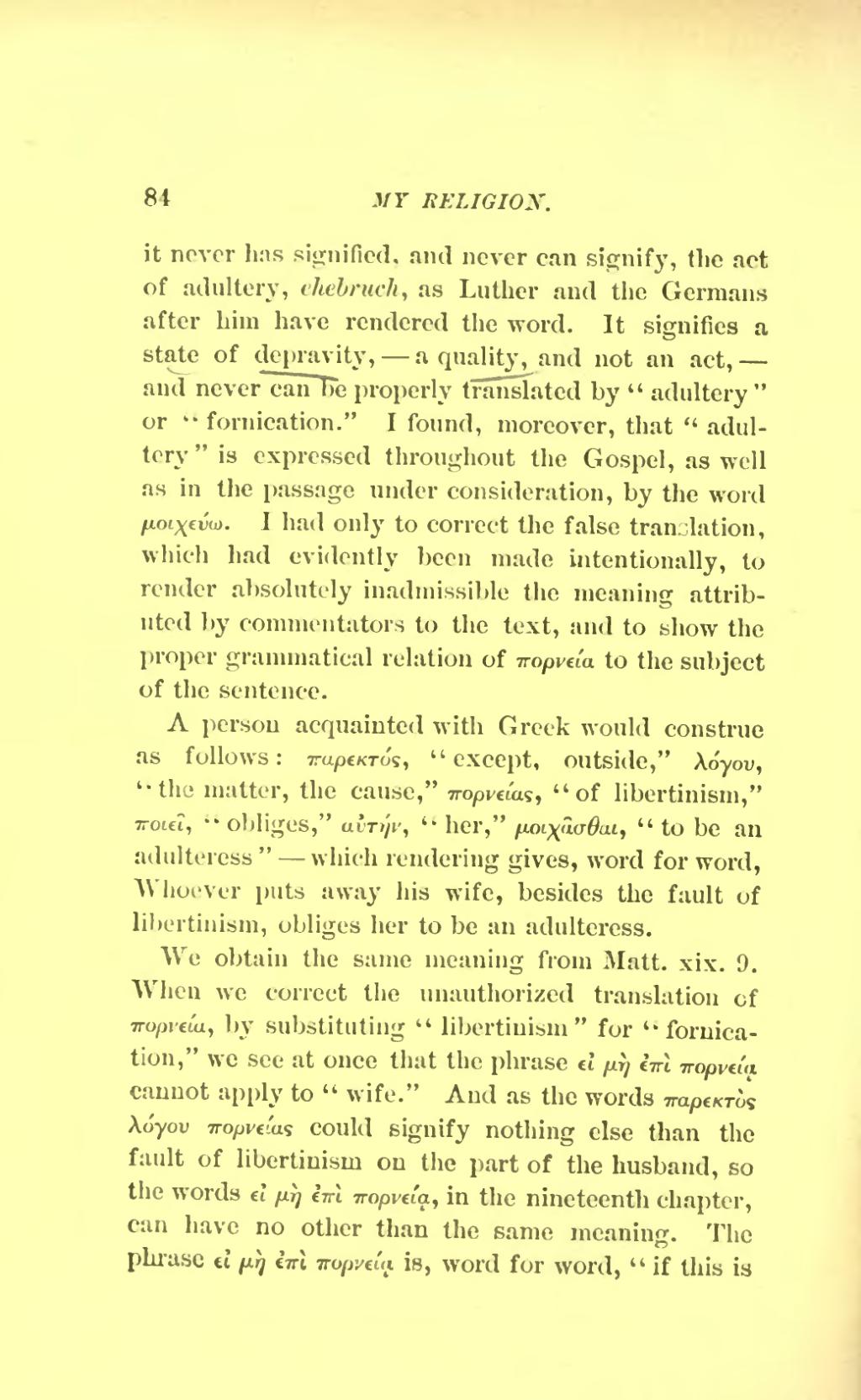it never has signified, and never can signify, the act of adultery, ehebruch, as Luther and the Germans after him have rendered the word. It signifies a state of depravity,—a quality, and not an act,—and never can be properly translated by “adultery” or “fornication.” I found, moreover, that “adultery” is expressed throughout the Gospel, as well as in the passage under consideration, by the word μοιχεύω. I had only to correct the false translation, which had evidently been made intentionally, to render absolutely inadmissible the meaning attributed by commentators to the text, and to show the proper grammatical relation of πορνεία to the subject of the sentence.
A person acquainted with Greek would construe as follows: παρεκτός, “except, outside,” λόγου, “the matter, the cause,” πορνείας, “of libertinism,” ποιεῖ, “obliges,” αὐτήν, “her,” μοιχᾶσθαι, “to be an adulteress”—which rendering gives, word for word, Whoever puts away his wife, besides the fault of libertinism, obliges her to be an adulteress.
We obtain the same meaning from Matt. xix. 9. When we correct the unauthorized translation of πορνεία, by substituting “libertinism” for “fornication,” we see at once that the phrase εἰ μὴ ἐπὶ πορνείᾳ cannot apply to “wife.” And as the words παρεκτὸς λόγου πορνείας could signify nothing else than the fault of libertinism on the part of the husband, so the words εἰ μὴ ἐπὶ πορνείᾳ, in the nineteenth chapter, can have no other than the same meaning. The phrase εἰ μὴ ἐπὶ πορνείᾳ is, word for word, “if this is
